May every living being, our minds as One and radiant with light, share the fruits of peace.
To practice Loving Kindness is courageous. To practice Loving Kindness takes strength. To practice Loving Kindness is living awake to, awake in the immediacy of life. To practice Loving Kindness is a remedy to the fear and anxiety that covers the heart’s natural ease and radiance. To practice Loving Kindness is the fruit of the spiritual life—the function of spacious heart.
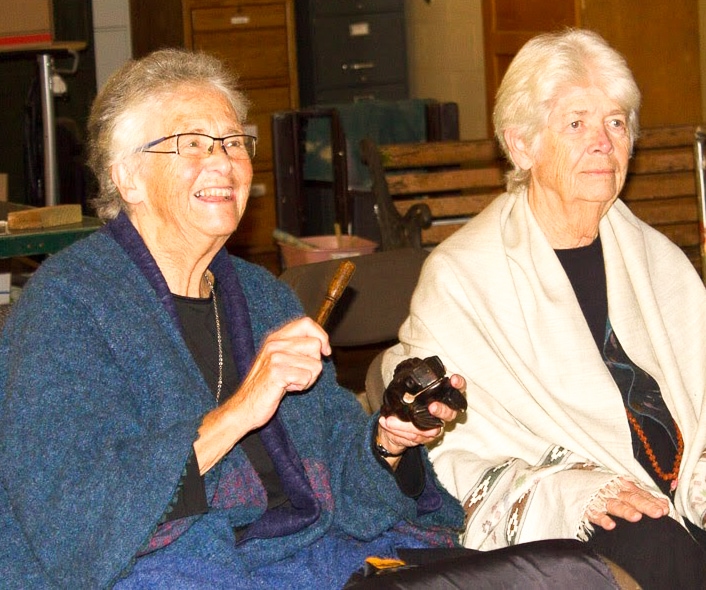
With hearts of goodness luminous and bright.
The Bodhisattva of Great Compassion sits in the Royal Ease posture. Upright, open, confident, calm—looking upon each and every being, with loving attention and ease. To be at ease. To truly be at ease. We practice acceptance. Complete fundamental acceptance. Of ourselves. Our experience. Our situation. Our world.
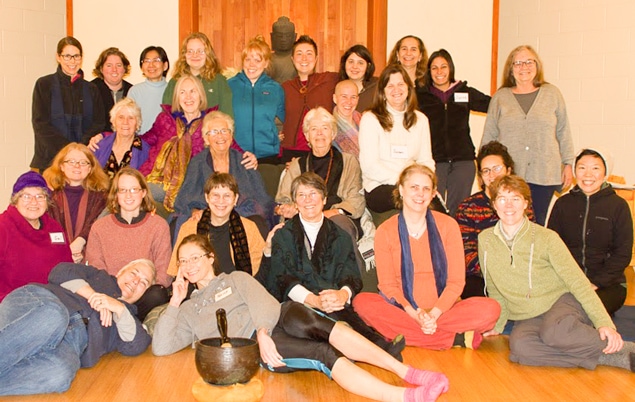
How do we accept the unacceptable? How can we/why should we be at ease in a world that seems to be taking steps toward self-destruction?
Ease is not indifference. Acceptance is not complacency. Instead it is the complete willingness to take the backward step, to bring the mind and heart to zero, to zoom out from the world caught in the dualities of right and wrong, true and false, acceptable and unacceptable, even life and death. To put down all views and enter the centerless unknown, the Great Mystery, Boundless Space. Looking at all of creation from the spacious heart, set free and non-grasping—from love, as love.

If people here and see, how hands and hearts can find in giving unity. May their minds awake, to great compassion, wisdom and to joy.
The Bodhisattva of Great Compassion tirelessly carries in his 10,000 hands every imaginable tool to help liberate living beings from the many forms of suffering.
First, we accept this is a world of suffering. Then, we take the next most beautiful step. From zero, 10,000. This is the way of the world. Space/love embracing all, all born from space.
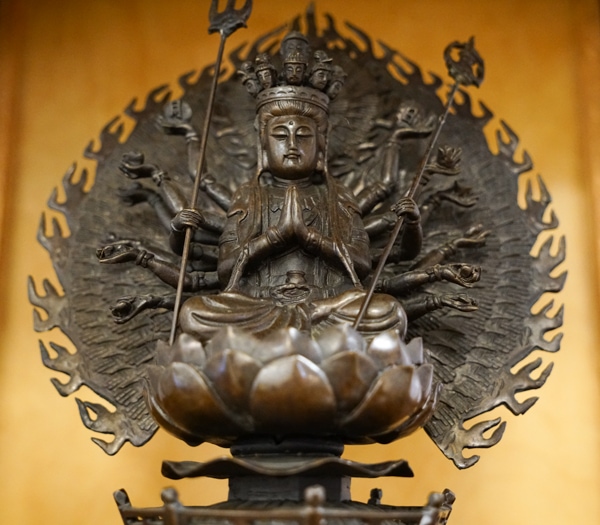
How do we save all beings? How can we relieve the suffering of the world?
Before we can relieve suffering, we need to understand how it operates. What creates suffering? What causes dis-ease? Where does the friction of life come from?
On a personal level much suffering comes from the habitual tendency to locate a separate self in space and time. A “self” that carries around ideas about how things should be, that is in almost constant conflict with the way that things are. To be committed to the relief of suffering in the world, we also must stay committed to understanding how we create suffering in ourselves and the world, due to our ideas, beliefs, opinions and views.
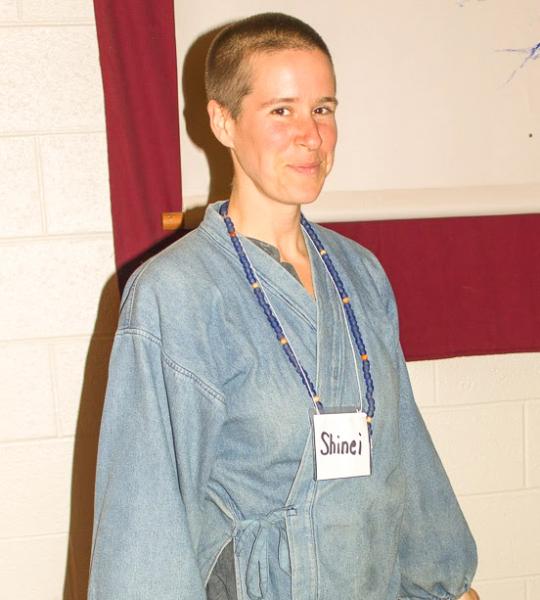
May kindness find reward, may all who sorrow leave their grief and pain. May this boundless light break the darkness of their endless night.
The Bodhisattva of Great Compassion cries—shedding tears for everyone who is caught in the thralls of pain, aggression, fear and ignorance. Tears for those fighting wars, and those living in war zones, those being displaced because of violence, for those protecting their water rights, for those working in government, for those exploited, those living in terror, for the Earth, the Oceans, the rivers, the children of the world, for those grieving loss, for those subjected daily to persecution, for those who are exploiting or persecuting others out of fear or shame, for human beings and animals, for all of us living in ignorance, not fully awake. Continuous tears, streaming from a heart tuned into the reality of suffering and pain.
But this isn’t the whole story. Compassion is not separate from wisdom. Insight into the spacious heart gives compassion its depth to truly hold all the pain—without burning out.
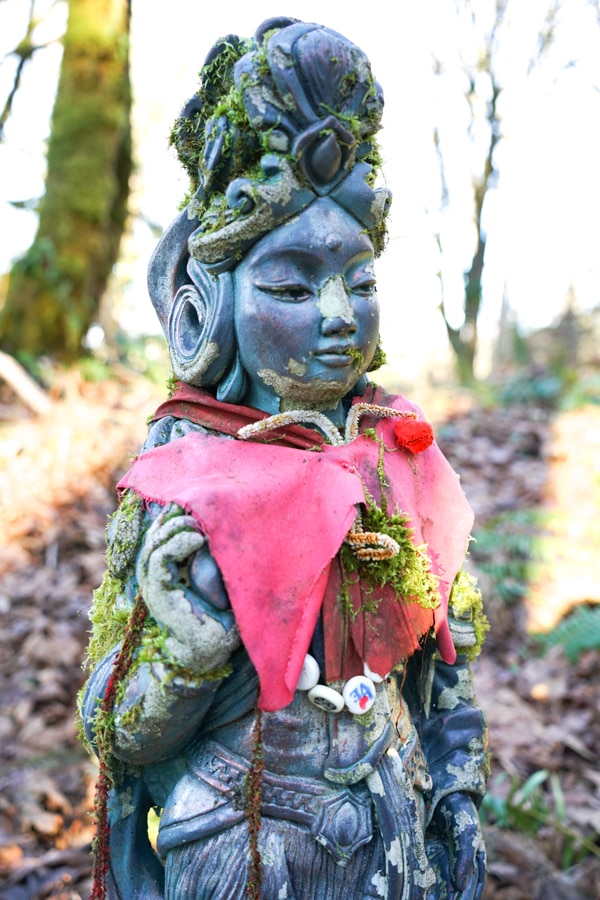
She collects these tears in a vase. And it is her insight into emptiness that transforms them to the waters of compassion. Allowing her boundless, limitless love for all creation to flow freely out, embracing all hurt in the suffering world.
This transformation is always happening. It is the gift and beauty of impermanence. All thoughts, opinions, emotions, moods and physical sensations are constantly changing, flashing in and out of being, un-locatable in our direct attention, empty in appearance. Dogen Zenji says, “Moment by moment a thought appears and disappears without abiding, moment by moment a body appears and disappears without abiding. But the power of practice always matures.” We too are not fixed in time and space. True love is not separate from pain. They arise simultaneously. It is the space of love that cradles all suffering. That allows for transformation, and from which the heart deepens and expands.
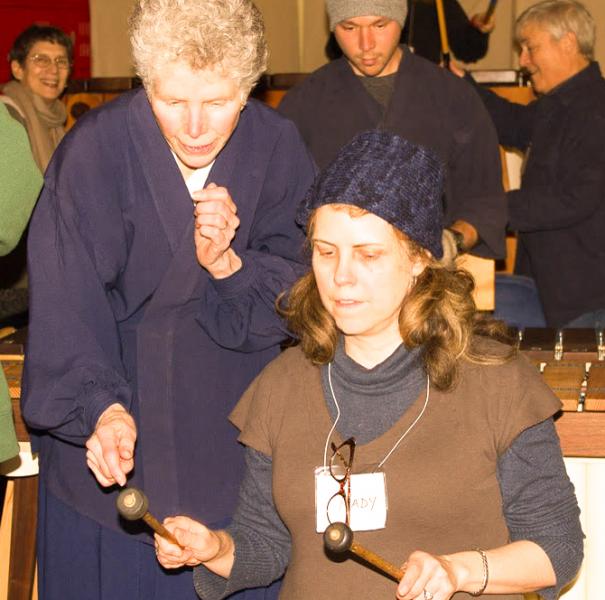
Because our Hearts are One, this world of pain turns into paradise.
The Bodhisattva of Great Compassion violently stomps out all ignorance–screaming, shouting, snarling, yelling. Wild hair on fire, two faces fiercely looking in every direction, four arms thrashing through space, heart overflowing with love. Here to wake us up! That is what we wanted right? Their compassion is fierce yet pure, immediate!
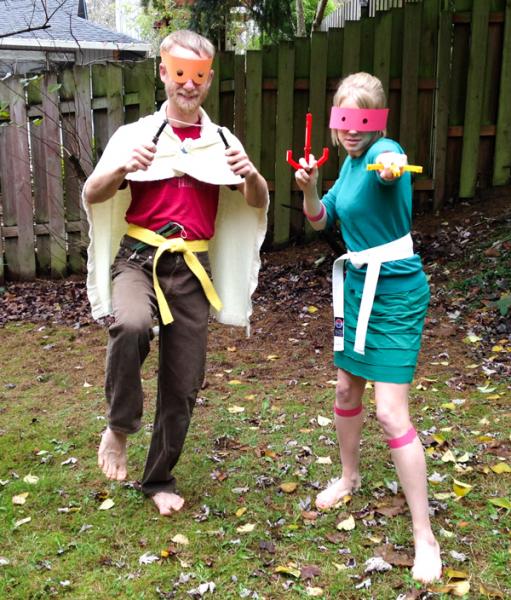
Wake up! Wake up! Wake up! They scream. Appearing in forms that we often don’t expect. Like a failing marriage. A parent’s unexpected death. A prickly co-worker. A difficult boss. The President of the United States.
Those who wake us from complacency are not the peaceful occasions of life, but the ones that threaten our perception of how the world, or people, or events should be. The ones that force us to look at our fixed beliefs and views, and question how we are living—what is really important. The ones that remind us of the constant uncertainty of each moment, that we are walking the Great Mystery step by step.
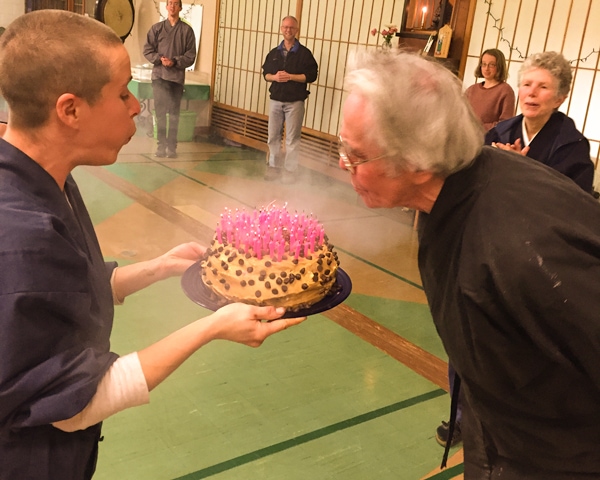
If fear arises, great. Investigate the nature of fear. If anger arises, great. Investigate anger. As practitioners these unexpected wake-up calls are welcomed teachers showing us the current limit of our insight and compassion. Pulling the rug out from under us. Asking us to live the heart that is as large as the sky.
May all become compassionate and wise. May all become compassionate and wise.
Italicized words taken from the Dedication of Merit by Rev. Heng Sure
